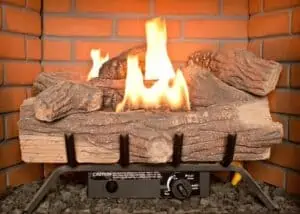Why does my gas fireplace smell
Gas fireplaces are a popular choice for homeowners, as they offer a convenient and efficient way to enjoy the warmth and ambiance of a fire without the hassle of chopping wood or cleaning up ash. However, many gas fireplace owners may notice a distinct smell emanating from their fireplace, which can be off-putting and even concerning. In this article, we will explore the reasons why gas fireplaces can smell, and what you can do to address the issue.
(Looking for “gas fireplace contractor Peoria“? Contact us Today!)

One of the most common reasons why gas fireplaces can emit a smell is the presence of gas leaks. Natural gas, which is commonly used to fuel gas fireplaces, is odorless and colorless, so gas companies add a chemical called mercaptan to give it a distinctive odor, similar to that of rotten eggs. This is done as a safety measure, as it allows people to detect gas leaks before they become dangerous. If you detect a strong odor of gas coming from your fireplace, it is important to immediately shut off the gas supply and contact a licensed professional to inspect your fireplace and gas lines.
Another reason why gas fireplaces can smell is due to the buildup of creosote and other debris in the chimney or flue. Creosote is a highly flammable substance that can accumulate in chimneys and flues when wood or other organic materials are burned. While gas fireplaces do not produce creosote, they can still create other types of debris, such as dust, dirt, and soot, which can build up over time and cause odors. Regular chimney and flue cleaning can help prevent the buildup of debris and eliminate any associated smells.
In some cases, the smell coming from your gas fireplace may not be related to the fireplace itself, but rather to the materials used in its construction. For example, if your gas fireplace has a stone or brick surround, these materials can absorb and retain odors, particularly if they have not been sealed properly. Similarly, if your fireplace has a metal or glass enclosure, these materials can also emit odors if they become dirty or corroded. Regular cleaning and maintenance of all fireplace components can help prevent odors and ensure that your fireplace functions properly.
Finally, it is important to consider the type of gas logs you are using in your fireplace. While gas logs are a convenient and easy-to-use alternative to traditional wood logs, they can also produce odors if they are not properly maintained. For example, if your gas logs are not positioned correctly, they may not burn cleanly and can emit unpleasant smells. Similarly, if your gas logs are coated with soot or other debris, they can create odors when heated. Regular cleaning and maintenance of your gas logs can help prevent odors and ensure that they burn cleanly and efficiently.
In conclusion, if you have noticed a smell coming from your gas fireplace, it is important to identify the source of the odor and take appropriate action. Whether it is due to gas leaks, chimney or flue buildup, materials used in the fireplace construction, or gas log maintenance, there are steps you can take to eliminate odors and keep your fireplace functioning properly. By staying vigilant and taking proactive measures, you can enjoy the warmth and ambiance of your gas fireplace without any unpleasant smells.

